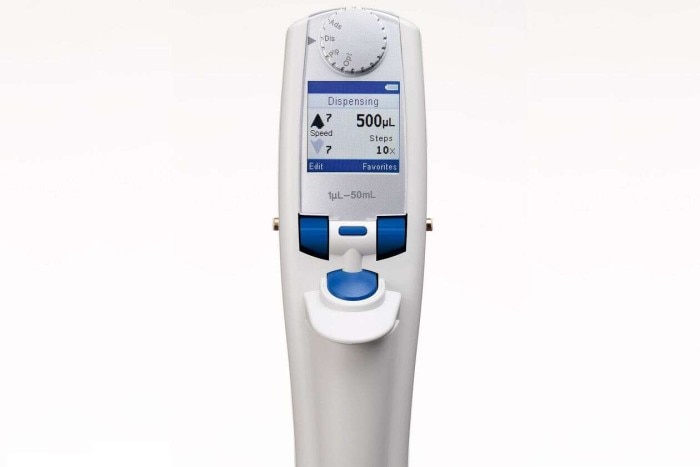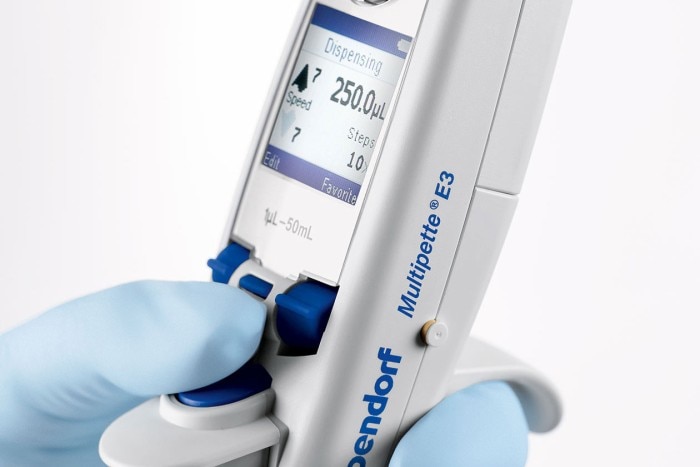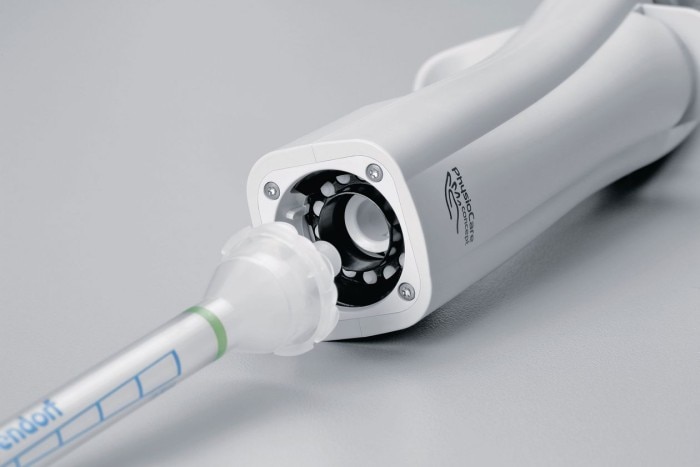-
- Alle Zentrifugen
- Tischzentrifugen
- Standzentrifugen
- Gekühlte Zentrifugen
- Mikrozentrifugen
- Mehrzweckzentrifugen
- Hochgeschwindigkeitszentrifugen
- Ultrazentrifugen
- Concentrator
- IVD Produkte
- High-Speed and Ultracentrifuge Consumables
- Zentrifugenröhrchen
- Zentrifugenplatten
- Gerätemanagement
- Proben- und Informationsmanagement
-
- Alle Pipetten, Dispenser und automatischen Liquid-Handling-Systeme
- Mechanische Pipetten
- Elektronische Pipetten
- Mehrkanalpipetten
- Direktverdrängerpipetten & Dispenser
- Pipettenspitzen
- Flaschenaufsatzdispenser
- Pipettierhilfen
- Zubehör für Dispenser & Pipetten
- Automatisches Pipettieren
- Verbrauchsartikel für die Automation
- Zubehör für die Automation
- Services für Dispenser & Pipetten
Dispensing Ergonomics - Eppendorf PhysioCare Concept®
Mehr erfahren
Weniger lesen

Mehr erfahren
Weniger lesen
Mehr erfahren
Weniger lesen
Is there any sense in the color code of the Combitip?
The standardized specific color codes used for the Combitips enables an easy and fast identification of the required Combitip volume class. Blue, for instance, indicates a pipette with a Combitip with a 1,000 µl volume class.

Does programming take forever?
Programming electronic dispensing tools can be quite difficult: Go to menu, select sub menu three, switch there to the fourth function, and select the volume class.
A central selection dial lets you quickly and easily change operating modes.

Missing the balance point?
Especially electronic dispensing instruments can very often be top heavy due to their battery. When working with 96-well or even 384-well plates, this results in wrist stress as the human hand tends to counter-balance the instrument while you complete your tasks.
The dispensing tool should have a hand rest designed to let the instrument remain balanced in your hand so even a long dispensing series won’t pose a problem.

5 mL with a 0.5 mL Combitip?
Overloading of tips or Combitips may result in loss of sample and potential contamination of the instrument. You can manually define the maximum volume to reduce the risk.
An integrated sensor at the bottom of the instrument automatically recognizes the Combitip volume type and displays this information so work continues smoothly.
No need to manually adaption anymore.

Finished dispensing step no. 15? Or 16? Or 17?
Remember the last time when you were dispensing a buffer in your 96-well plate and your colleague distracted you with a question? After you answer it, you stood there wondering: Where did I leave off?
Integrated step counters in the dispensing instrument provide helpful information about the number of wells you’ve filled and where you’ve left off.

Mehr erfahren
Weniger lesen
Mehr erfahren
Weniger lesen
